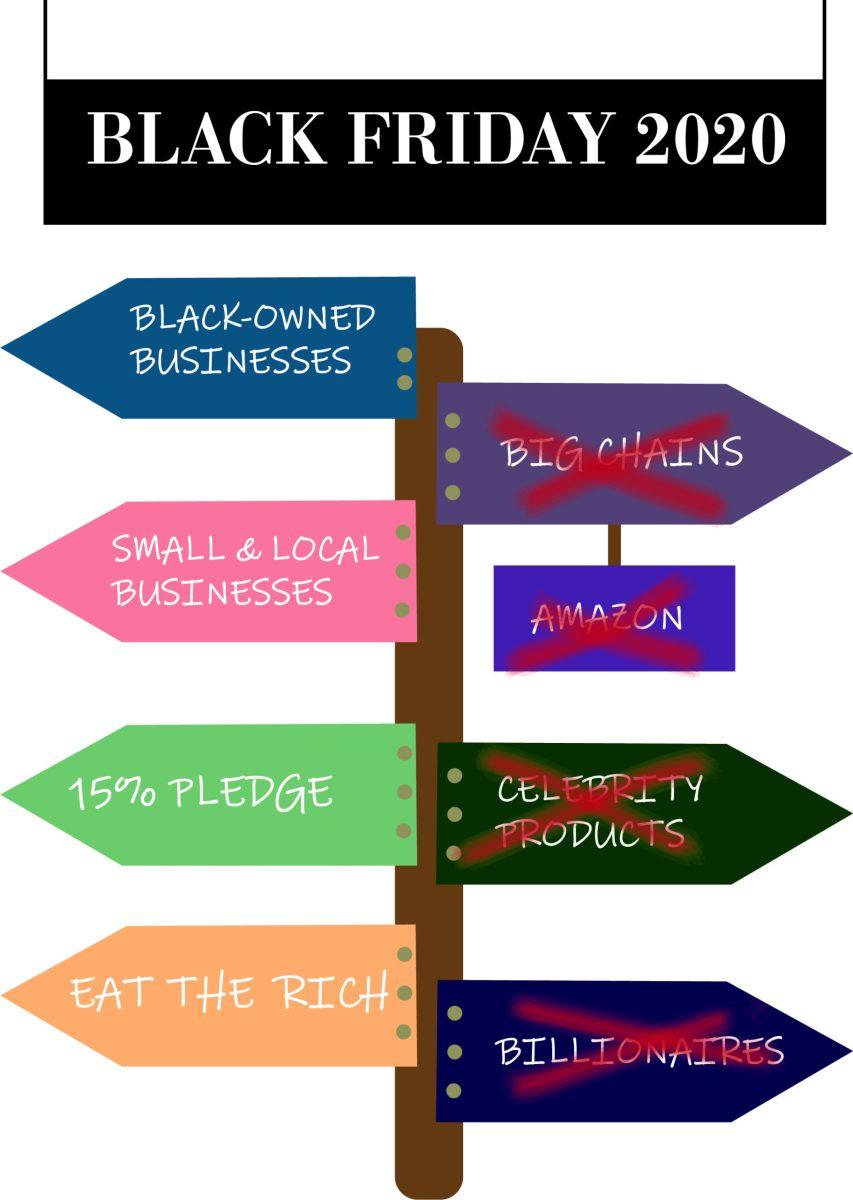
Kim Kardashian rented out a private island and flew friends and family to Tahiti to celebrate her 40th birthday, despite California’s non-essential travel ban. Amazon CEO Jeff Bezos paid more for his $165 million manor than Amazon paid in taxes for 2019. In the meantime, every day people struggle to pay for groceries, rent, bills and have lost their jobs. This is why we should eat the rich.
The concept of “eating the rich” comes from social theorist Jean-Jacques Rousseau who remarked after the French Revolution that when the people run out of things to eat, they will resort to eating the rich. Today, the phrase signifies class struggle and the desire to eliminate billionaires. The phrase appeared to counter the “Rich Boy Check Challenge” on TikTok with #eattherich.
Glaring class disparities prevail on social media. It became especially poignant during quarantine when a group of celebrities sang “Imagine” by John Lennon to inspire hope in people, but only sparked criticism and disgust. Singing a song from the safety and comfort of a mansion on Instagram will not help a struggling family make it through the pandemic. Billionaires like Kim Kardashian have the luxury of renting private islands and private jets, ignoring the pandemic and plight of the outside world.
When eating the rich is not an option, starve them this Black Friday and buy from Black-owned and local businesses. These businesses struggled in comparison to big businesses prior to COVID-19, and the pandemic only exacerbated this issue. As the wealth gap widens, the rich get richer and the poor get poorer. Most Americans are closer to poverty than ever becoming a millionaire or billionaire.
Should billionaires exist? In short, no. Billionaires possess more wealth than 60% of the world’s population. A report found that an extra 0.5 in taxes for the next 10 years for the world’s richest 1% would be equivalent to an investment adding over 100 million jobs in workforces like health, education and childcare. The lack of a wealth tax on millionaires and billionaires allows them to accumulate more wealth by underpaying workers and damaging the environment for their own gain.
It’s not only billionaires that need to be taxed, but their companies as well. Amazon had an income of more than $11 billion in 2018 but paid $0 in taxes due to tax credits and deductions. Amazon had to pay $162 million in 2019, the first year it owed taxes since 2016.
Come Black Friday, Cyber Monday and all of the other sales events, Amazon will make millions. It’s abhorrent that billionaires and their companies can get away with paying so little in taxes.
People like Bill and Melinda Gates possess more wealth than they could ever spend in their lifetime. So why not eat the rich?
It’s likely because many Americans cling to the American dream that falsely promises hard work merits rewards and success. In actuality, socioeconomic mobility is declining and most people die in the same class they were born into. The American dream celebrates the rags-to-riches story, but American society holds none of the infrastructure necessary for it to come to fruition. Instead, capitalistic society thrives on individuals doing anything and everything for profit.
Black Friday is one of the major shopping days of the year, always landing on the Friday after Thanksgiving. Although, in recent years, Black Friday evolved from a one-day event to a weekend and weeks-long event. After the clock strikes midnight on Halloween, businesses and stores everywhere scramble to put up their holiday-themed merchandise in anticipation of Black Friday.
Black Friday weekend 2019 drew 189.6 million shoppers. Thanksgiving and Black Friday 2019 yielded $11.9 billion in online sales. This year, Black Friday looks different due to COVID-19. To accommodate, many stores expanded their deals online and offered their Black Friday deals prior to Black Friday. Curbside pickup and delivery are also options for shoppers.
COVID-19 forced many small businesses to close temporarily or permanently, negatively affecting 79% of small businesses on some scale. Given the pandemic and limited access to physical stores, many people will turn to holiday shopping online, and very likely Amazon.
Instead of shopping on Amazon, shop small and shop local. Do research about which stores in the community are open and what options they may have for online shopping, pick-up and delivery. If shopping small is not a viable option, look to retailers that have taken the 15% Pledge, which asks retailers to stock 15% of their products from Black-owned businesses or suppliers. As consumers, it’s important to put one’s money where their mouth is and take action. Bon appétit.
_In pursuit of racial and social equity, The Maneater encourages its readers to donate to Spicy Zine, a “collective led by and for women of color and queer/trans people of color working at the intersection of arts, organizing, and publishing.” Donate at: https://www.paypal.com/paypalme/spicyzine_
_Edited by Sofi Zeman | [email protected]_